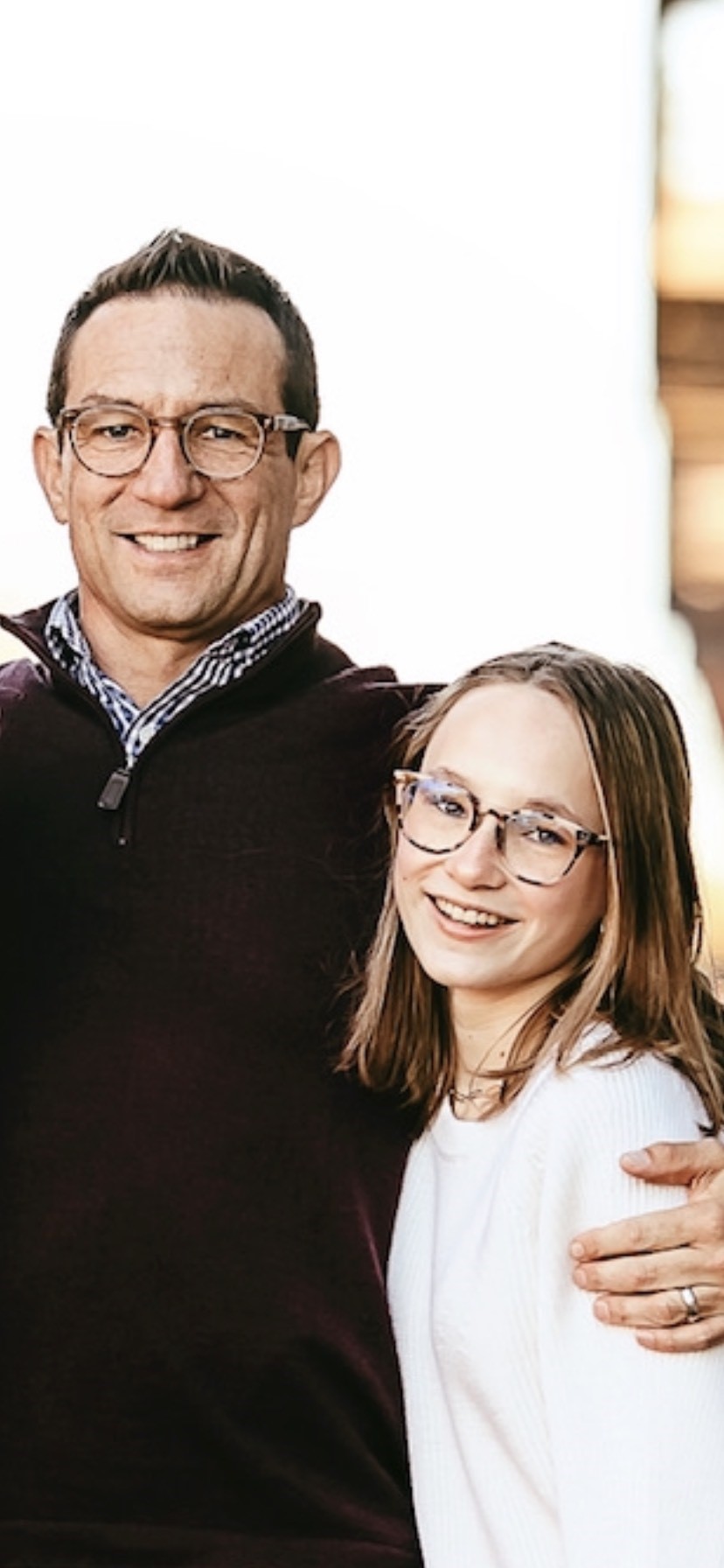By Thomas Sander
When our daughter, Lily, was four-years-old she was unusually clumsy, something we initially wrote off as developmentally appropriate. Soon, however, her feet turned in dramatically, leaving her mobility severely restricted. My wife and I spent an entire year taking Lily from doctor to doctor, trying to find a diagnosis to explain her symptoms. We were worried sick through the whole diagnosis process because there were so many scary diseases she could have had.
After a year, we finally got a diagnosis of Charcot-Marie-Tooth (CMT), a rare disease that affects the peripheral nerves of the body and is diagnosed by exclusion, meaning that it is only diagnosed after all other possible diseases have been ruled out. This can be a long and frustrating process and even more difficult when you are worried about your child’s health. CMT is not (normally) a death sentence, but it can cause a variety of symptoms, including muscle weakness, fatigue, and pain. I was relieved to finally have an answer but also scared: we didn’t know much about CMT, and we didn’t know what the future would hold for our child, as it tends to get worse as you age.
One of the most important things we did was get Lily and our family involved in the CMT community. There are many support groups and organizations for people with CMT, and they can provide a wealth of information and resources. We also found an amazing surgical team and a great physical therapist who helped Lily learn how to walk again after surgery and cope with the symptoms of her disease. Lily has faced a lot of challenges in her life, but she has never given up. Now, at 16, she is an inspiration to me and many others, and I am so proud of her. She is a strong, independent young woman who is determined to live her life to the fullest while helping others to do the same.

Tom and Lily Sander
I am so grateful for Lily. She has taught me so much about love, strength, and resilience. I am a better father because of her. Parenting a child with CMT provides numerous obstacles, but with those obstacles come wisdom.
If you are the parent of a child with CMT, I want to offer you my support and advice. I know that it can be a difficult journey, but I also know that it is possible to raise a happy and healthy child with CMT. My wife and I have learned a multitude of lessons through parenting a child with a rare disease; among them, there is no one-size-fits-all approach. Every child is different, and what works for one child may not work for another.
The first lesson we learned is the importance of being patient and understanding. Children with CMT may need more time to complete tasks, and they may need help with certain activities. Next, we learned the significance of creating a positive and encouraging atmosphere. Children with CMT can do anything they set their minds to; with love and support, they can reach their full potential. Lastly, we learned it is crucial to the child’s well-being and success to be involved in the CMT community.
The effects of our involvement in this community have been seen in great ways: Lily has chosen to be an ambassador for the Muscular Dystrophy Association, work with the CMTRF, and raise funds and involvement among youth through serving on the CMTA Youth Council. She is a passionate advocate and fundraiser for patients and encourages others to do the same. More importantly, she has found community and empowerment through her work which has been crucial to her navigating life with CMT.
The frustration that we all share as parents of CMT kids can be debilitating, depressing, and life-altering for the entire family. It is important to find ways to cope with this frustration. Some people find it helpful to talk to a therapist or counselor. Others find it helpful to get involved in support groups or organizations that are dedicated to helping people with CMT.
I have coped with this frustration by getting involved in organizations that fund research for CMT. In fact, I just joined the Board of the CMT Research Foundation. I believe that there will be a cure for CMT, but only if funding and awareness are increased. If CMT has touched your life, please get involved. You can make a difference by raising awareness for the disease, raising funds, or donating in a meaningful way.
